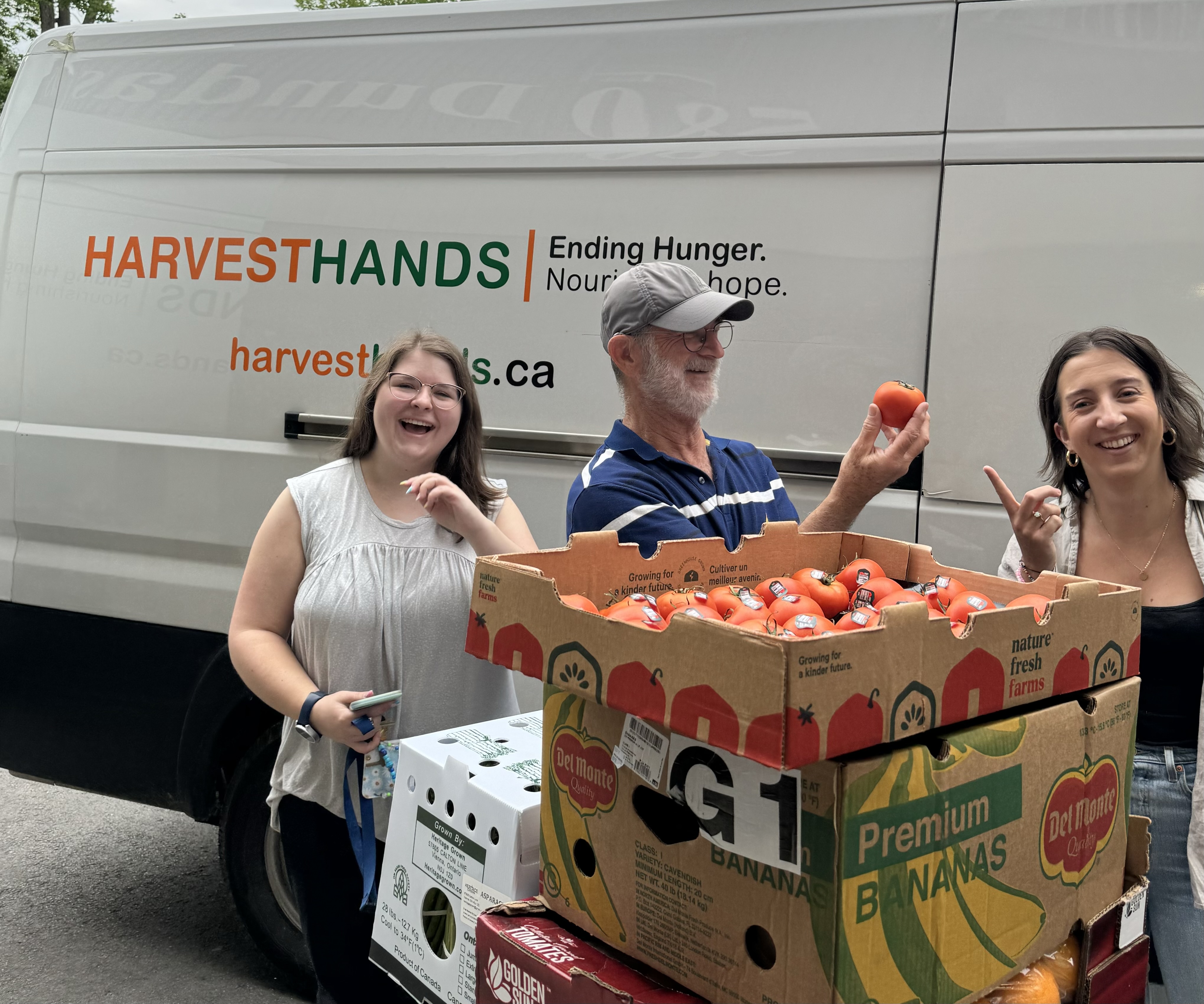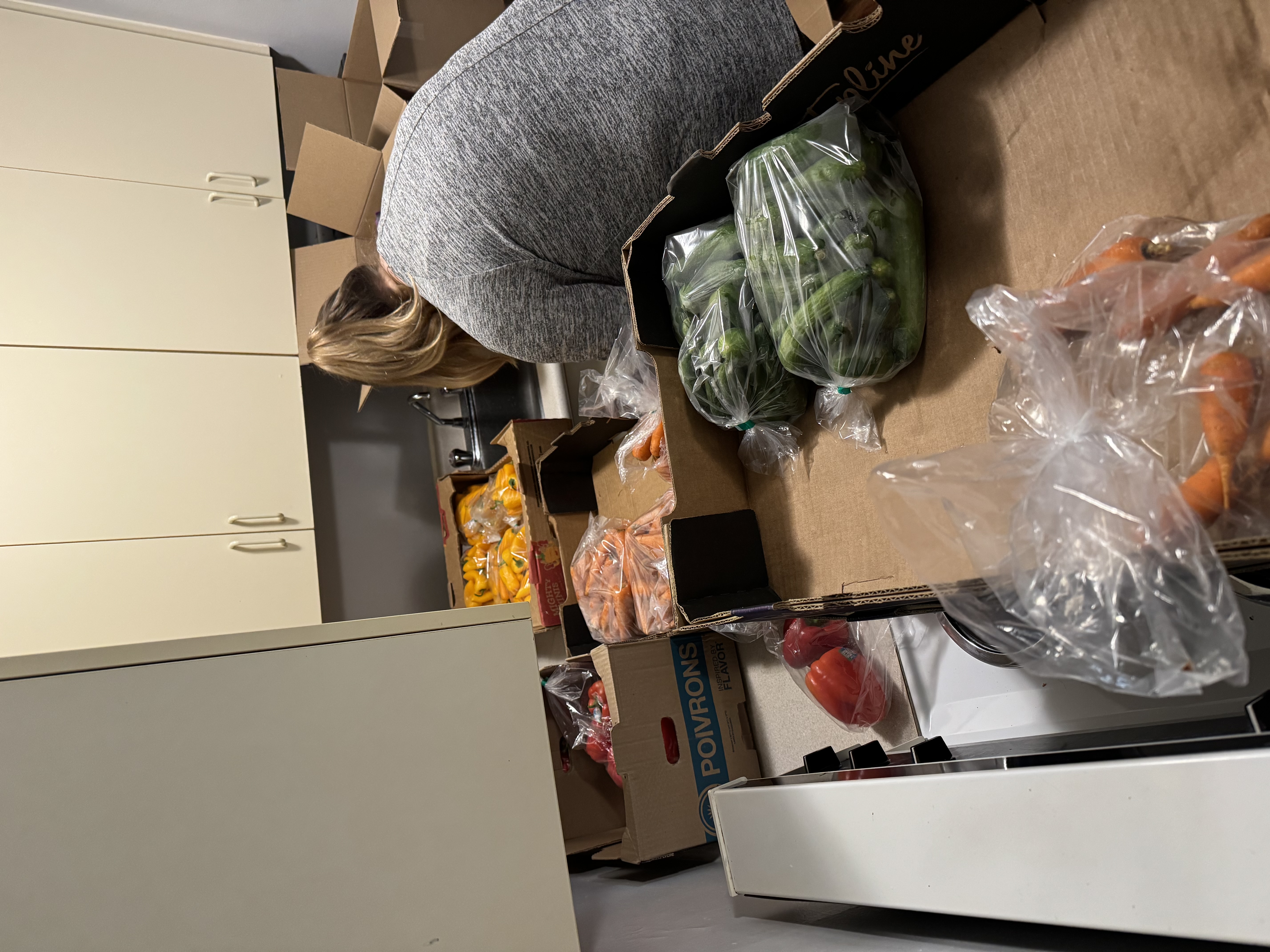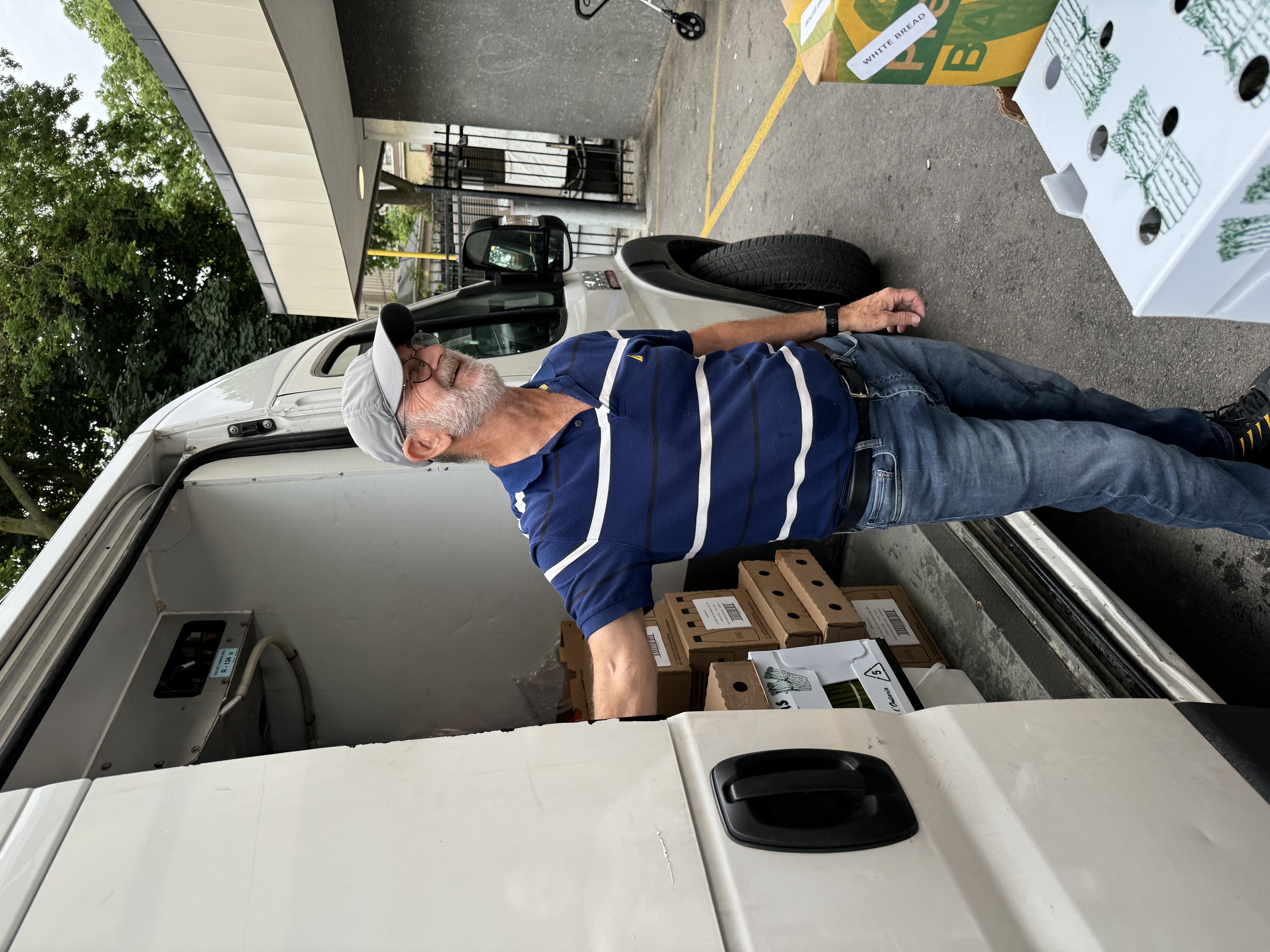Nobody should be worried about where their next meal will come from. Unfortunately, that is the case for many Canadians, among them LMCH tenants, many of who experience food insecurity.

Food insecurity means not being able to get enough good-quality food in ways that are socially acceptable, or not being sure you can get enough in the future. It's often tied to a household not having enough money to buy the food they need, and in Canada, food insecurity is rising.
From 2022 to 2023, the number of Canadians in severely food-insecure households rose from 4 percent to 6 percent. Those in moderately food-insecure households increased from 8.9 percent to 10.9 percent.1
Despite growing levels of food insecurity, each year, Ontario produces over 50 million tonnes of food waste, with approximately 12 percent of that coming from food retailers.2
That’s where organizations like Harvest Hands come into play. Harvest Hands is a non-profit organization focused on redistributing surplus food from bakeries and retailers to support agencies and families across Southwestern Ontario. Operating solely on donations and volunteer efforts, Harvest Hands supplies food to more than 200 organizations, agencies, and missions, enabling them to provide over 60,000 meals each month.
LMCH’s partnership with Harvest Hands began two years ago, when employee Breanna Dartch saw an opportunity to connect tenants at Dundas to an essential resource. Today, food donations are regularly delivered to LMCH’s most food insecure adult buildings by volunteers who drive vanloads of food donations from St. Thomas to London for distribution. LMCH staff then unload the donations, organize and divide them into parcels for tenants to take.
 |
 |
|---|
James, who delivers the donations to Dundas on a weekly basis, has been volunteering with Harvest Hands since last Fall:
“It’s really very rewarding because you see the operation in St. Thomas – all the food comes in from various locations that are overstocked, and they bring it in to one central location. Then we drop off food five days a week to different food kitchens, food banks and places like this. I have five stops just today so you can imagine how much food is getting delivered. It’s a terrific concept.”
Tenants are now able to rely on the weekly Harvest Hands deliveries to help stretch their grocery budgets, and many report the positive impact the deliveries have made in their lives. The food they receive is different every week, but each bag typically holds seasonal fruits and vegetables, bread, dairy products and even some desserts and treats – all food that would have gone to waste without Harvest Hands.
Our vision as an organization is to build inclusive communities where safe, affordable, and accessible housing is the foundation for positive change. The addition of partnerships like this can make a big difference for tenants who would benefit from some extra support. Sometimes all someone needs is an extra helping hand.


